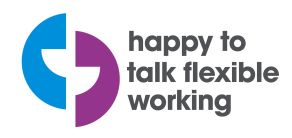Latest News
National Work Life Week 2020
Posted on Friday, 16th October 2020

Today marks the last day of National Work Life Week 2020. To coincide with the event, today’s blog looks at what work-life balance is, and how it can be achieved in the workplace.
What is work-life balance?
In simple terms, work-life balance is how much of your time you dedicate to work compared to other aspects of your life. This includes time spent socialising, relaxing, taking part in hobbies and, most importantly, time spent with family.
Achieving a good work-life balance is essential to being happy and healthy. Overworking and not having enough time for family or friends can have a massive effect on your mental health. This can lead to stress, anxiety, and depression, which can also result in declining physical health.
What steps can I take to achieve a good work-life balance?
In the highly demanding and competitive world of work we live in, it can be difficult to achieve a positive work-life balance. But it’s integral that workers take responsibility for their health by ensuring they are standing up for themselves in the workplace.
Firstly, it’s essential to maintain good communication with line managers and speak to them honestly if the demands or expectations of them are too much. Being overwhelmed by the amount of work can lead to a lot of stress and anxiety. Workers may feel pressured into working through breaks, staying later, or working the weekend just to catch-up on work. This is a slippery slope; the human brain needs time to relax and refresh in order to function correctly.
It’s also important that you draw a clear line between your work life and your home life. Try not to take your work home with you. This means avoiding your work email when you’ve finished for the day, and switching off your work phone if you have one. For some jobs, this may not be possible as the work demands they are always on call. But if this isn’t the case, you should make clear notes of any time you spend working over your contracted hours. You can use this as evidence if you feel you are being overworked or exploited.

How good work-life balance benefits employers
Any good organisation recognises that happy workers are better workers. Positive working environments are proven to improve productivity across the board. Conversely, if staff are overworked the quality of their work drops. Tiredness, stress, and pressure can lead to more mistakes being made, which can cause real problems for an organisation further down the line.
A positive work-life balance for all employers also reduces levels of sick days related to physical and mental health issues, as stress and anxiety are two of the leading causes of absence in the workplace. The happiness of workers will also mean organisations have less staff turnover, saving them time and money in recruitment.
How has Covid-19 affected work-life balance?
The coronavirus pandemic has made huge changes to almost every aspect of our working lives. While there has been serious economic damage caused by the virus, one positive side effect has been a massive increase in flexible working.
When the virus first hit and forced schools and offices to close, many workers had to re-adjust to life working from home while juggling childcare responsibilities. This brought the importance of balancing work with family life into sharp focus, forcing many companies to re-evaluate the way they operate from top-to-bottom.
Figures from Working Families, show that before Covid-19, 65% of employed individuals were working flexibly. That figure has risen to 84% in recent months, with 97% of workers saying they want to retain flexible working post-Covid.
What is National Work Life Week 2020?
National Work Life Week is an annual campaign organised by Working Families dedicated to starting the conversation about employee wellbeing in the workplace. It aims to make workplaces re-assess their work practises to see if they are doing all they can to support working families.
How can my workplace get involved?
From the 12th – 16th October, various events have been run to help provide advice to employers and workers about how they can adapt and change their working practises to better support families. These have included a series of virtual roundtable discussions with experts from various industries, and virtual training sessions for managers and supervisors.
But achieving work-life balance is not just about one week, it should be something that is built into an organisation’s working practises. Consider using the Happy to Talk Flexible Working logo on your job vacancies you advertise to let potential applicants know you are serious about employee’s work-life balance and their overall welfare.
ESS Training
At ESS, we understand that life is unpredictable, and so training has to be flexible. We try to ensure our courses are as flexible as possible. This is why we deliver e-learning training, which allows you to complete from home at what ever time suits you. We have also recently started delivering remote video learning, to help workers get their training in a post-Covid world.
If you want to find out more about how our training can work for you, you can contact the ESS team directly on 0115 8970 529. You can also email us at info@essentialsiteskills.com


